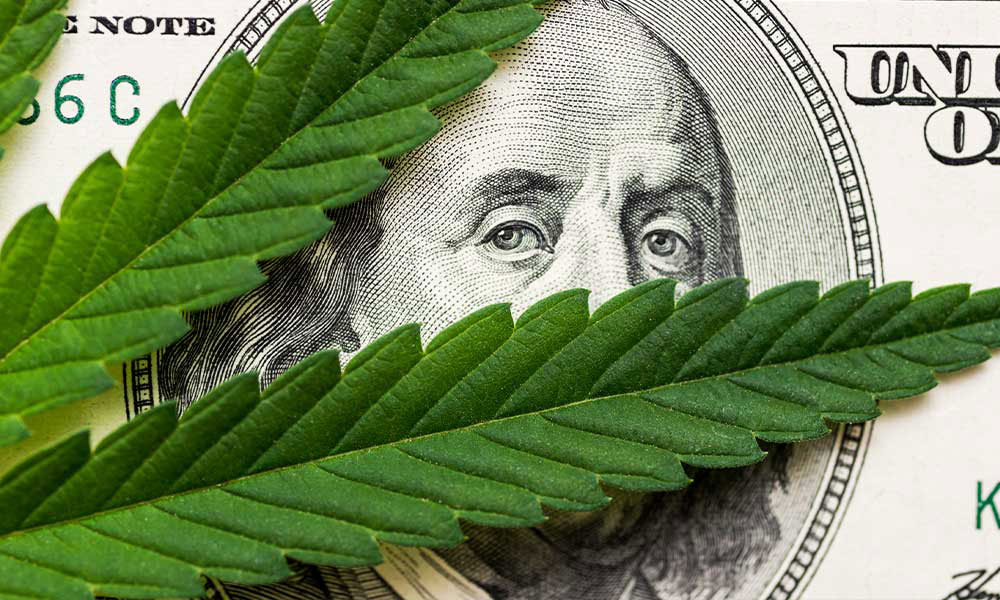A bipartisan group of US lawmakers has reintroduced legislation to give legal cannabis companies improved access to banking services routinely used by other businesses across the nation. The bill, the Secure and Fair Enforcement (SAFE) Banking Act of 2023, was refiled in the Senate late last month by Democratic Sen. Jeff Merkley of Oregon and Sen. Steve Daines, a Republican from Montana. Republican Rep. Dave Joyce of Ohio and Oregon Democratic Rep. Earl Blumenauer filed a companion bill in the House of Representatives, where previous versions of the legislation have passed seven times.
Because of the continued illegality of marijuana at the federal level, cannabis companies operating legally under state or tribal law often have difficulties obtaining traditional banking services such as payroll accounts and credit card transaction processing. Banks and credit unions that choose to do business with cannabis companies must follow strict regulations and take the risk of facing prosecution under drug and money laundering laws for noncompliance. As a result, the regulated cannabis economy is conducted largely in cash, leaving businesses, employees and customers vulnerable to crimes including armed robberies. The sponsors of the legislation also note that businesses operating in an all-cash economy pose a greater risk of tax evasion.
“This legislation will save lives and livelihoods. It’s past time that Congress addresses the irrational, unfair and unsafe prohibition of basic banking services to state-legal cannabis businesses,” Blumenauer, founder and co-chair of the Congressional Cannabis Caucus, said in a statement on April 26. “The House has passed the SAFE Banking Act on a bipartisan basis seven times. I’m delighted that the Senate is joining us in making it a priority.”
Bill Protects Banks That Serve the Cannabis Industry
If passed by Congress and signed into law by President Biden, the SAFE Banking Act would prevent federal banking regulators from prohibiting or restricting a bank from providing services to a regulated cannabis business operating legally under state law. The same protections would also apply to banks that serve other businesses associated with the regulated cannabis industry, such as attorneys and the owners of commercial rental properties. Federal banking regulators would also be barred from terminating or limiting a bank’s federal deposit insurance primarily because the bank is providing services to a state-sanctioned cannabis business or associated business.
“As it stands, the federal government has denied state-legal cannabis companies the same access to financial services as every other legal business across the Buckeye State and our country,” Joyce said, who also serves as co-chair of the Congressional Cannabis Caucus. “Not only does this distort the market in a growing industry, but it also forces businesses to operate in all cash, making them and their employees sitting ducks for violent robberies. The bipartisan SAFE Banking Act will allow cannabis businesses to operate legally without fear of punishment by federal regulators, making our communities safer.”
Additionally, the SAFE Banking Act prevents regulators from taking any action against a loan to the owner or operator of a cannabis business and from recommending or providing incentives to banks to halt or downgrade services to legal cannabis businesses. The legislation also creates a safe harbor from criminal prosecution, liability and asset forfeiture for banks and their officers and employees who provide financial services to legitimate, state-sanctioned cannabis businesses, and the right not to provide such services would be maintained. The latest version of the bill, which has been revised slightly compared to previous iterations, also extends the safe harbor protections to Community Development Financial Institutions (CDFIs) and Minority Depository Institutions (MDIs) that make commercial loans to minority-owned businesses, according to a report.
Legislation Approved Seven Times in the House
Previous versions of the SAFE Banking Act have been approved by the House of Representatives seven times, but the Senate has failed to bring the bill up for a vote under both Republican and Democratic leadership. Last year, Democratic leaders offered an enhanced version of the legislation known as SAFE Banking Plus that also contained provisions to expunge past federal convictions for marijuana-related offenses, but that bill also failed to advance. Democratic leaders hope the version introduced last month without the expungement provisions will gain a hearing in the Senate Banking Committee before advancing to the floor.
“Forcing legal businesses to operate in all-cash is dangerous for our communities; it’s an open invitation to robbery, money laundering, and organized crime—and it’s way past time to fix it,” said Merkley. “For the first time, we have a path for SAFE Banking to move through the Senate Banking Committee and get a vote on the floor of the Senate. Let’s make 2023 the year that we get this bill signed into law so we can ensure that all legal cannabis businesses have access to the financial services they need to help keep their employees, their businesses, and their communities safe.”
The SAFE Banking Act of 2023 has broad support in both chambers of Congress. In addition to the primary sponsors, the legislation has the support of 38 additional co-sponsors in the Senate, including five Republicans. In the House, the bill has eight additional co-sponsors, evenly split among Democrats and Republicans. The bill has been referred to the Senate Banking Committee for consideration, as well as three committees in the House. (Full Story)

